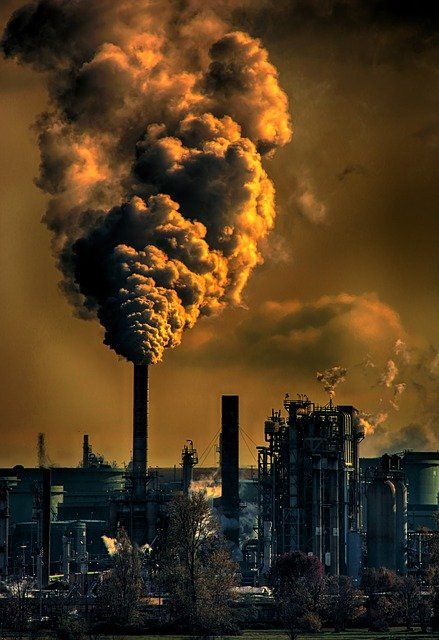
In August, the oil giant BP withdrew its £1.4 million court action against Greenpeace Ltd, the British arm of the worldwide environmental crusade, lifting the threat of bankruptcy from the UK organization. Almost certainly, however, we have not heard the last of the matter. Activists from Greenpeace had invaded a BP drilling platform in the Foinaven field, west of Shetland, disrupting production. Greenpeace maintains that oil exploration should be cut back because the more oil that is available, the more will be used. The result will be further pollution of the atmosphere with ‘greenhouse’ gases, like carbon dioxide, and unstoppable global warming. BP do not deny their right to protest, but maintain that they acted unlawfully and should be restrained from further such actions. In return, Greenpeace has launched its own High Court action seeking to have all North Sea oil exploration licences revoked as ‘unlawful’.

Whose side should Christians take? Is there a specifically Christian position on environmental issues such as this? There is no doubt that our global environment is constantly threatened by man’s own activities.
The progressive loss of the ozone layer, with the implication of more skin cancer; the short and long-term effects of nuclear-energy disasters; oil-pollution from shipping accidents; the destruction of the rain forests, further enhancing carbon-dioxide levels in the atmosphere and fears of serious global warming; more locally, the impact of traffic growth and road-building continually erode the quality of life; the catalogue seems endless.
Equally, we rejoice in environmental victories, such as the return of salmon to the Thames and seals to the river Medway, all the result of tough government legislation. EEC regulations are rapidly improving the quality of Europe’s beaches and in shore waters. In the USA the Environmental Protection Agency is demonstrating that effective action can be taken to limit and even reverse industrial pollution.

It is only necessary to think of the disastrous environmental effects of unregulated military and industrial activities in the former USSR and Communist Eastern Europe to realize how fortunate we are in the democratic world to have governments that are accountable to public opinion in these matters. Christians, as citizens, have a responsibility to make their voices heard in the battle to preserve the planet. But is there a specific Christian response beyond this? The answer is ‘no’ in the narrow sense that we should either oppose or support such things as drilling for oil in the North Sea, or building a particular motorway or bypass.
Christians may legitimately differ about the rights or wrongs of a given project, since the arguments are often finely balanced. However, there are certain principles that can be found in Scripture and by which all believers will be guided in taking their personal stance.

The cultural mandate
When God created the world, he gave it to man as both his habitation and his dominion. ‘God said to them, “Be fruitful and multiply; fill the earth and subdue it; have dominion over the fish of the sea, over the birds of the air, and over every living thing that moves on the earth”’ (Genesis 1:28). This charge has become known as the ‘cultural mandate’ because it implies that mankind was to develop civilization and all that goes with it. Certainly, man was put in charge of his environment and that brings both opportunities for its exploitation and responsibilities for its protection. There is a balance here. There is a proper exploitation of the world by man. Nature is not god, but rather is provided by God for man’s benefit. In giving Israel the promised land, the Lord called it ‘a land whose stones are iron and out of whose hills you can dig copper’ (Deuteronomy 8:9). There is nothing wrong with mining, then! Or with the metallurgical processes that follow it. Industrial technology is not ‘green’, but neither is it wrong. Indeed, Scripture approves it in principle. We all benefit daily, in countless ways, from the achievements of technology, such as medical science, communications, travel, labour-saving devices and industrial design. It is only when technology over reaches itself and threatens to destroy the environment and human welfare, that we need to call a halt.

The ordinance of man
While we may have a sneaking admiration for ‘Swampy’ and those like him who defy authority, the believer will always work within the law and will not support unlawful action, no matter how deserving the cause. We are to be ‘subject to the governing authorities’ and to ‘every ordinance of man for the Lord’s sake’ (Romans 13:1; 1 Peter 2:13). This persuasion is not born of ‘other-worldliness’ but from the conviction that God is sovereign and will guide his children to do what is proper and necessary in any given situation. This does not mean that we should be passive if we believe that wrong is being done. Far from it! But our action and our protest will always be courteous, lawful and God-honouring. We shall be positive, not negative, and supportive of steps taken by the community to improve the environment.

A fallen world will be restored
Believers will also remember that they live in a world that God has ‘subjected to futility’, and that lies in ‘the bondage of corruption’. The created order was placed in this position when Adam sinned, but will one day, at Christ’s return, be delivered from its bondage ‘into the glorious liberty of the children of God’ (Romans 8:19-21). What difference does this make to our perception of ‘green’ issues? I would suggest two things.
Firstly, it means that we should never make ecology our God or environmentalism our religion. The present world order will pass away. Although ‘the heavens are the work of [God’s] hands’, they will ‘grow old like a garment; like a cloak you will fold them up, and they will be changed’ (Hebrews 1:10-12). The chief task of the church, and of believers individually, is to preach the gospel of Christ to every creature. Evangelism, not ecology, must be our priority.

Secondly, we ought not to fear when others predict the earth’s doom, whether by man’s pollution or through improbable disasters such as collision with a comet. Christ is sovereign over the physical universe as he is over the human heart. Although God, in his judgement upon sin, has subjected the physical world to futility, we may be assured that he has not relinquished control. When he brings human history to an end, the creation will be delivered from its corruption and there will be ‘new heavens and a new earth’ (2 Peter 3:13).
By all means let us be ‘green’. But let us also be guided by the priorities of the gospel and the principles of Scripture. Then we will glorify the Lord in this needy world.







